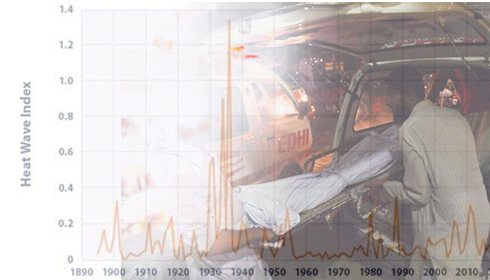
United Nations calls for global action on extreme heat amid rising deaths and illnesses
António Guterres, the Secretary-General of the United Nations, has issued an urgent call to action on extreme heat, emphasizing the growing concerns posed by rising global temperatures. This plea emphasizes the need for caring for the vulnerable, protecting workers, building resilience through data and science, and working to limit the global average temperature rise to 1.5 °C.
The escalating climate crisis is raising global temperatures to unbearable levels, resulting in an increase in heat-related deaths and illnesses while putting enormous strain on health-care systems. Heat stress has emerged as the biggest cause of weather-related mortality, with an estimated 489,000 deaths occurring each year between 2000 and 2019.
Dr. Maria Neira, the Director of the World Health Organization's Department of Environment, Climate Change, and Health, asserts that extreme heat is the most visible effect of climate change, affecting everyone. "Extreme heat exacerbates existing health issues, and it has an unexpected impact on everyone's health. Heat can influence people's mental health, causing them to become confused, agitated, or even violent."
Acute and extended exposure to extreme heat has serious consequences, causing heat stress and increasing existing health issues such as cardiovascular disease, diabetes, mental health disorders, asthma, and kidney disease. It also raises the likelihood of accidents, poor pregnancy outcomes, and the transmission of certain infectious diseases. Untreated heat stress can lead to heat stroke, which is a potentially lethal medical emergency.
Despite the alarming figures, heat-related diseases and deaths are avoidable. Evidence-based therapies and techniques are available to save lives and greatly reduce the health consequences of excessive heat. Public awareness campaigns about staying cool, heat-ready social protection, and robust health systems can effectively safeguard the most vulnerable. Additionally, expanding heat-health warning systems to notify authorities and the public, as well as promoting nature-based solutions in urban areas, can help to reduce excess heat in cities.
According to a WHO report, the global implementation of heat health warning systems in 57 countries has the potential to save approximately 100,000 lives per year. The World Health Organization co-sponsors the Global Heat Health Information Network, which brings together UN agencies, governments, specialists, and civil society partners to share knowledge and create solutions to protect communities from excessive heat around the world.
Guterres' Call to Action underscores the critical need for a worldwide, coordinated response to the high heat threat. This includes integrating scientific data and resilience techniques, caring for the most vulnerable people, safeguarding workers from extreme temperatures, and working together to reduce global warming.
"Addressing extreme heat is not just about adapting to a new climate reality; it's about saving lives and safeguarding our future," Guterres told the crowd. "We must act decisively and collaboratively to tackle this growing crisis."
As the globe faces an unprecedented climate crisis, the UN's Call to Action serves as a timely reminder of the urgent and long-term actions required to avoid severe heat. We can lessen the disastrous effects of rising temperatures and secure a safer, healthier future for everybody by prioritizing vulnerable people's protection and strengthening global resilience.